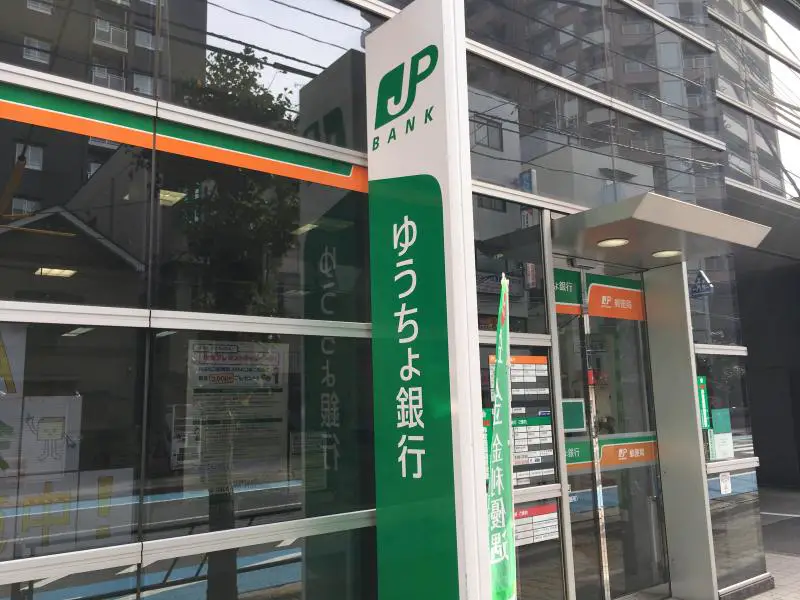Racism in Japan?
Disclaimer
Despite the exciting title to this post, I have never experienced any overt racism in Japan.
It’s a topic that I take up with some trepidation because I have been welcomed into Japan with kindness by so many people. The amount of times that I’ve felt unwelcome (in any sense) can be counted on one hand.
This blog post is more about whether institutional racism or even just the extreme xenophobia in Japan has any effect on the day to day lives of non-Japanese people living in Japan.
In many ways I’m still a visitor here and I don’t want to come across as that foreigner who is always saying, “Hey, Japan! You’re doing it wrong!” Also, I don’t think that racism (if you can call it that) is a problem at an individual level. Instead I think that it’s the institutions, and perhaps governments, that are cumbersome and are too slow to change to reflect a changing Japan.
All that said, there have been two instances over the past few weeks which have made me think about what sort of life you have when you’re a non-Japanese resident of Japan. Things that have frustrated me and led me to question where that line is between xenophobia and racism.
Some contextual information about me
If you’ve stumbled straight onto this post. My name is Nathan Crocker. I’m 37 years old and I have been living and teaching in Japan for just over 7 years.

I’m from New Zealand. Wellington, which is the capital city, is my hometown. I went to university there, studying English Literature and Classical Studies before going on to do a Masters in Creative Writing.
I came to Japan in the second half of 2011, just before my 30th birthday. When I arrived in Japan I had no Japanese, other than a few phrases I learned over the internet in the weeks leading up to departure. And I actually had very little idea about Japanese culture at all. My partner had studied Japanese all through high school and had actually already lived in Japan teaching English. She had friends that she’d stayed in contact with since her high school exchange programme. So she was the driving force behind coming to Japan.
Since arriving in Japan, I’ve lived in the cities of Matsuyama and Imabari in Ehime prefecture. This is on Shikoku, the smallest of Japan’s mainland islands.
My experience of customer service in Japan
Both of the issues that I want to talk about at are tied to customer service. For that reason, I want to give you some background about my thoughts about Japanese customer service.
Exceptional customer service
Generally, the customer service in Japan is great. Not long after arriving in Japan, my partner and I had to sign in as residents of Matsuyama City. We accidentally went to the Ehime Prefectural Office instead of the Matsuyama City Office. Instead of just giving us the directions, or drawing a map (we were pretty close to the correct building) the staff member that we spoke to led us out of the building, down the road, across an intersection, into the correct building, and set us up an appointment with the person we had to speak to. This may be an extreme example, but it does reflect the effort that a lot of Japanese service staff go to to help you. Before I moved to Japan, I used to think that New Zealand had great customer service.
Some not so great customer service
At the other end of the spectrum, I’ve had some, very few mind you, instances of dreadful service for one reason or another. One was at Daiki (a Japanese homeware / hardware store).
I wanted to buy a set of drawers. Those cheap ones made of a very light frame and plastic drawers. I needed to ask the shop staff if I should take a set off the shelf, or if they had a boxed one that they would rather sell me. Now, my Japanese was dreadful at the time. I approached a staff member, I said “Sumimasen (excuse me).” I said “Nihongo sukoshi (I have little Japanese) and I indicated that I wanted him to follow me. He stood there with an annoyed look on his face and didn’t move. I indicated again that I wanted him to follow me so I could point at the product. He stood there and said “Wakaranai (I don’t understand)”. I don’t know if I would have been able to explain to him, using basic Japanese and mime, exactly what I was trying to find out. But I know that I would have had a much better chance if he had come with me to the product that I wanted to ask about.
I was so embarrassed by this exchange that I left the store.
I was so frustrated by the lack of assistance. I’m aware that we’re in Japan and I was communicating with little Japanese, and I don’t at all want to suggest that I was upset that he didn’t speak English. But I was disappointed that he didn’t take any time to figure out what I wanted. It would have taken less than a minute.
I really am very interested to know if you think I’m being unreasonable.
Situation 1 – JP Bank

Recently, I went with a new teacher at the conversation school where I work, to the bank to open an account for her.
The bank was Japan Post Bank which is generally seen as one of the most foreigner friendly banks in Japan.
The way that the office is set out (at least where we are in Imabari) is there are three or four tellers, but before you get to them there is a staff member that meets you to enquire what your transaction is, so you can have the relevant forms filled out before you get to the teller. I told this staff member that this was a new teacher at our school and we would like to open a bank account. He asked if she could write Kanji. I explained that she couldn’t. We were then told that she (the new teacher) was unable to open a bank account because she couldn’t write her address in kanji.
I knew this was not true and ridiculous because I’d been banking with them for six years and have only in the past year started writing kanji on any kind of official document. There is no way that the majority of new ALTs coming over with the JET programme can write an address in kanji when they arrive in the country.
My Japanese was not good enough to argue the point with him. What I did say was that I could write her address in kanji. But the bank staff said no, she must write it herself.
We’d reached the point in the conversation where we couldn’t do anything else. We left the bank. The new staff member at our school went in the next day with another foreign teacher whose Japanese is much better than mine. And they had no trouble at all. The new staff member’s documents were able to be filled out by our other staff member. And everything was fine.
So, what was the problem?
So what was the difference? Was it that my co-worker who is fluent in Japanese was able to push through the bank staff’s initial reluctance? Was it simply that she got a different staff member who didn’t mind taking the time to help?
But, it raises a few questions that I’d like to have answered. Is it really the bank’s policy that a foreign client must be able to write their address in kanji? Did my opening bank accounts in the past only happen because a bank teller bent the rules? How do new ALTs set up their bank accounts?
If it is the bank’s policy that everyone has to be able to write their own address in kanji, is there any further help that this staff member could have given us? I remember in the past having to write kanji on an official document and being coached through it by the staff.
Again, as I write this I wonder if I am demanding too much of the Japanese society to cater for my needs. Do you think this is true?
Situation 2 – Softbank

As a senior staff member in my work place, I have often had the task of trying to sort out a cell phone contract for new staff members. If you’ve ever been in this situation you know the frustration of trying to do this. The main conflict exists in the fact that the cell phone company wants to set you on a two year contract, when most teachers coming to Japan only have a one-year Work Visa. This I can see as simply the frustrations of doing business in another country. Yes, it’s frustrating, but it’s not something that will make me very upset, or question my choice of wanting to live in this country.
Frustrating phone purchase rules
What did upset me quite a bit happened a few weeks ago. I’ve been with the Japanese phone company Softbank for all of my time in Japan. Over seven years. For the first few years I was using a cheap pre-pay phone, but four years ago I took the plunge a got my first smart phone, an i-phone 5. At that time I was on a one-year Work Visa and as a result I had to pay the full price of the phone upfront as opposed to paying for it over two years. I thought that that was fair enough. The company must fear a foreign employee in Japan taking the expensive phone and returning to their home country where the company can’t legally reach them. So I happily paid the cost of the phone itself upfront and then went onto a monthly contract.
My phone is a few years old now and is on its last legs. So a few weeks ago my wife and I went into our local Softbank branch to inquire about a new phone. As expected the customer service staff told us that it was impossible. I’m now on a Spouse Visa but as it’s my first year on a Spouse Visa it’s only for one year (I assume that’s to weed out people with marriages of convenience). So, I’d anticipated this response and said that I was willing to pay for the phone upfront. To my surprise she said that it was still impossible. My wife asked her why it was impossible. Her response was because contracts were over two years and I only had a one year visa. I told her that I currently had a phone contract with the company, I only wanted a new phone, which I was willing to buy. She said it was impossible because of the two year contract.
The situation as I saw it
- I’m an existing customer on a monthly contract.
- I’d been a customer with the company for seven years.
- I didn’t really want to change anything except the physical phone.
- They would let me continue on my current contract, but not sell me a new phone.
We’d reached a point in the meeting where we couldn’t really make any progress. So we thanked the staff member and got up to go. The customer service staff then gave us the advice that we could look for a phone from the Apple website, and if we brought that phone in they would be able to give me a contract.
I was completely and utterly lost on what the difference was between paying upfront for a phone from Softbank and putting it on a phone contract, and buying a phone from Apple and bringing it in to put on a contract.
Is it a form of racism?
I want to reiterate what I said at the start of this post. I don’t want to come across as that foreigner that is continuously critical of Japan because things are not done the way that they are done in my home country. I’m interested in what it is that is causing these conflicts and trying to come up with ideas to improve them. Japan is currently trying to solve its problems of an ageing population, and shortage of working age people, by relaxing the Visa laws and trying to attract foreign workers. In order for this to be successful, Japan needs to get better at dealing with non-Japanese residents.
The way I see it is that both of the customer service staff in the examples above would have liked to help me, but they were unable to because the rules of their institutions make it difficult for them. Whether it is that the bank policies make it difficult for non-Japanese residents to open an account, or that individual employees don’t get training or are just not very confident when dealing with foreigners. Or because the telecommunications companies just haven’t considered non-Japanese residents of Japan. Perhaps that market is too small for them to worry about.
Either way, I certainly don’t believe that it was any malicious feeling at an individual level.
So what do you think? Am I being too sensitive here? Should I not expect any further help until my Japanese improves? Or, do you think there is a double standard in Japanese society? Did the customer service staff in the above situations behave professionally? Do you think there was more that they could do to help me? Or is it on me to organise a Japanese speaker when I want to do something of that nature? Please leave me a comment.
